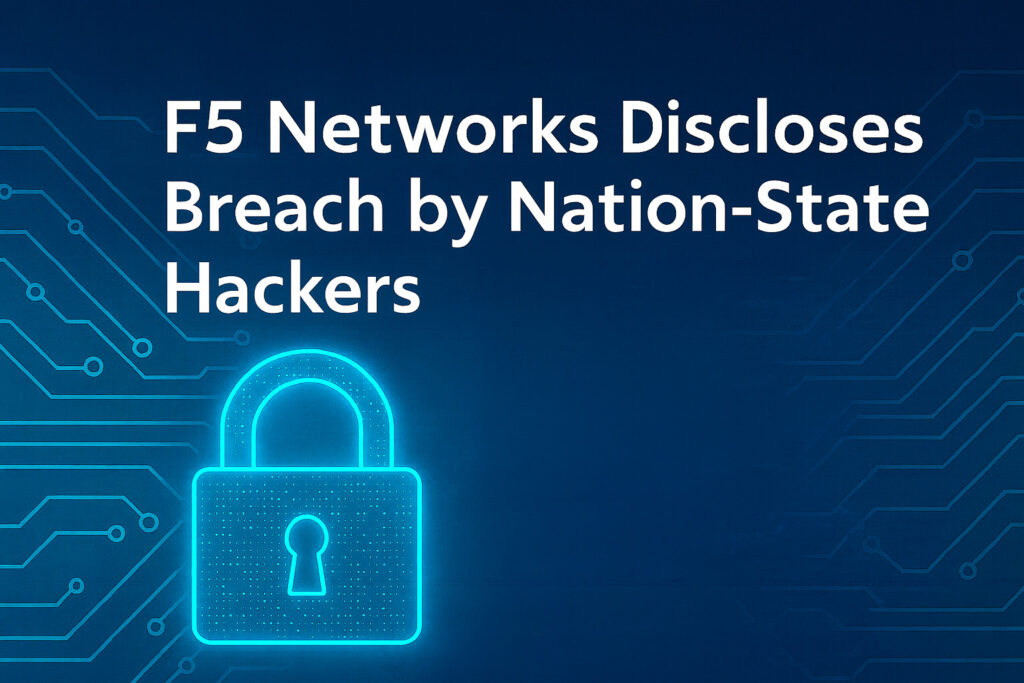🧠 F5 Networks Discloses Breach by Nation-State Hackers

Cybersecurity giant F5 Networks has disclosed a prolonged intrusion by nation-state–backed hackers, according to the company’s SEC Form 8-K filing on October 15, 2025.
Attackers reportedly remained undetected for months within F5’s systems, gaining access to product development environments and internal engineering knowledge bases.
The company confirmed that portions of the BIG-IP source code and information about undisclosed vulnerabilities may have been exfiltrated.
Given F5’s critical role in securing the network infrastructure of enterprises and governments worldwide, this breach is viewed as a significant wake-up call for the entire industry.
⚙️ Why the Impact Matters
F5’s products and services are central to securing web applications, cloud environments, and enterprise network traffic.
A compromise of its internal systems raises the risk of supply chain attacks, where vulnerabilities in one company ripple through to countless downstream organizations.
This situation echoes the SolarWinds incident in 2020, where attackers inserted malware into IT management software updates.
Nearly 18,000 customers were potentially exposed, though fewer than 100 were directly compromised.
The case underscored how a single company’s breach could threaten the broader ecosystem.
Similarly, the attack on F5 highlights the reality that core infrastructure providers themselves are high-value targets.
💡 Three Security Priorities to Revisit Now
- Regularly Verify Cloud and SaaS Security
Ensure your cloud providers comply with leading standards (e.g., SOC 2, ISO 27001). Track where your workloads are running and confirm compliance on an ongoing basis. - Enforce Strict Access and Account Management
Apply the principle of least privilege to external accounts and API keys. Immediately revoke access for former employees and contractors once their engagement ends. - Strengthen Employee Training and MFA Adoption
Most breaches begin with human error. Provide phishing-awareness training and enforce multi-factor authentication (MFA) to reduce reliance on passwords alone.
🌐 Conclusion
The F5 breach serves as a stark reminder: security does not end at your company’s perimeter.
Even the strongest defenses are vulnerable if critical third-party providers are compromised.
In today’s interconnected ecosystem, businesses must protect not only their data but also their trust.
Long-term resilience depends on both technical defenses and a culture of security awareness across organizations and their partners.